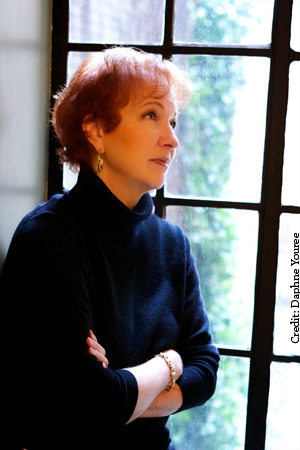Join a community of readers who are committed to Jewish stories
Sign up for JBC’s Nu Reads, a curated selection of Jewish books delivered straight to your door!
Earlier this week, Gwen Edelman wrote about building a walled ghetto in the middle of a city and a recent visit to Warsaw. Her most recent novel, The Train to Warsaw (Grove Press), is now available. She has been blogging here all week for Jewish Book Council and MyJewishLearning.
 I started reading about the fate of the Jews during the Second World War when I was eleven. No one I knew ever mentioned the subject, but I just became obsessed and have continued to read about it ever since.
I started reading about the fate of the Jews during the Second World War when I was eleven. No one I knew ever mentioned the subject, but I just became obsessed and have continued to read about it ever since.
One reading experience I particularly remember is “Fragments” by Benjamin Wilkomirski. Because I had already read so many memoirs by Jews about their experiences during the war, I immediately thought something was wrong. All the memoirs I had read before were characterized by very clear recall of details, but this memoir instead was vague and floating. While I thought it was a good book, something just didn’t ring true. Offering him the benefit of the doubt, I reminded myself that Wilkomirski was only two years old during the Holocaust and that his memories might be floating in gauze like this because of his young age. I had never read a memoir by someone that young. But, as you probably know, it turned out he had invented the whole thing. Unfortunately, I was not surprised at all. Rather, I was only surprised that he had not called it a novel. And a very good and imaginative one, too.
Here is a list of ten books which are, for me, some of the most powerful and most meaningful books concerning (in most, but not all cases) the fate of the Jews during the Second World War:
Into That Darkness by Gitta Sereny
A portrait of Franz Stangel, commandant of Treblinka, based on extensive interviews by one of the outstanding journalists of our time.
Kaputt: A Novel by Curzio Malaparte
A stingingly irreverent, cruel, and brilliant look at the war in some of the places where Malaparte, a diplomat, spent those years: Russia, Poland, Finland, Romania.
The Skin: A Novel by Curzio Malaparte
The tragic and corrupt carnival of life in Naples from 1943 until the end of the war.
Life and Fate: A Novel by Vasily Grossman
An extraordinary and epic novel with a huge cast of Russian and German characters centered around the battle of Stalingrad. One of the
great novels of the twentieth century.
The General of the Dead Army: A Novel by Ismail Kadare
A brilliant novel by one of the greatest contemporary writers. Set in Albania 20 years after the war, the story follows an Italian general and an Italian priest to Albania where they are to retrieve and repatriate the bones of Italian soldiers who died during the Italian occupation of Albania.
Mr. Sammler’s Planet: A Novel by Saul Bellow
Far-ranging meditations by a Holocaust survivor now living in New York.
History: A Novel by Elsa Morante
One afternoon in 1941 in Rome, an Italian woman is raped by a German soldier and gives birth to a boy. The story of this strange boy and his older brother in wartime Rome, and the woman’s determination that her two boys survive is the drama of ordinary people caught up in a horrific war with which they they had nothing to do.
The Periodic Table by Primo Levi
In which Levi, himself a chemist, discovers that a German chemist with whom he has been corresponding and with whom he has placed an order, had been the chief of a laboratory in Auschwitz where Levi himself had been a prisoner.
The Holocaust Kingdom by Alexander Donat
One of the best non-fiction accounts of day-to-day existence during the Holocaust. Donat and his wife and child were in the Warsaw Ghetto. He and his wife were later deported to nine different death camps.
Words To Outlive Us: Eyewitness Accounts from the Warsaw Ghetto edited by Michal Grynberg
A collective memoir by many voices of experiences of the Warsaw Ghetto. Extremely powerful and immediate accounts.
Gwen Edelman’s first novel, War Story, was translated into eight languages, won the Prix du Premier Roman Etranger in France, and was a Koret Jewish Book Award finalist. Her most recent novel, The Train to Warsaw(Grove Press), is now available.
Related Content: